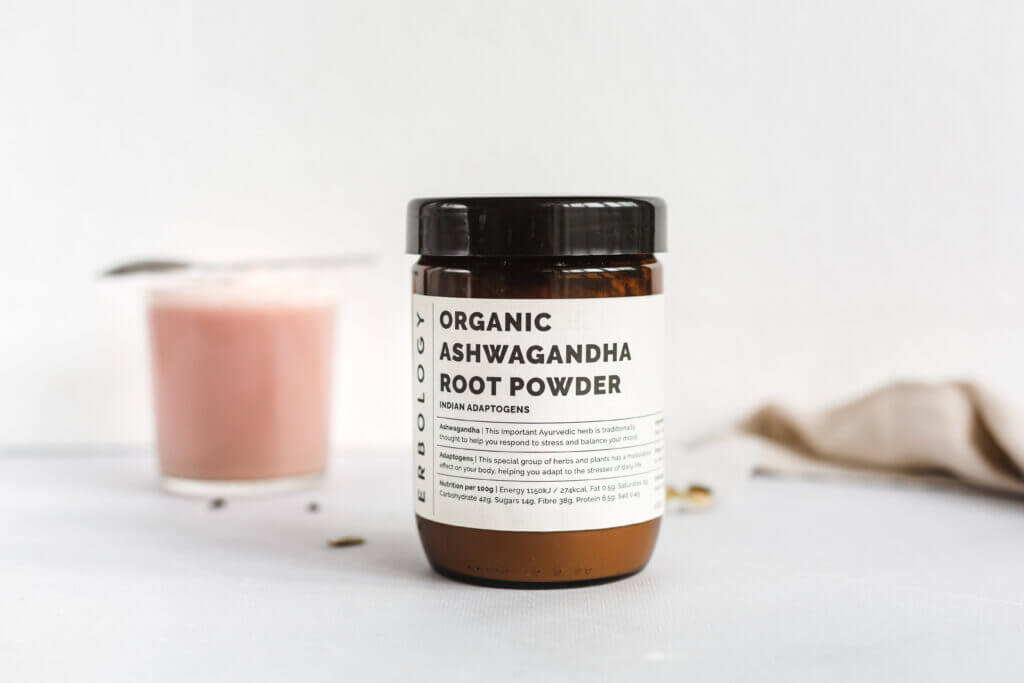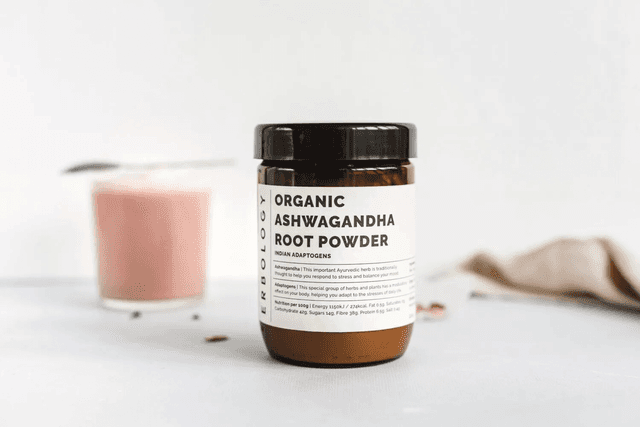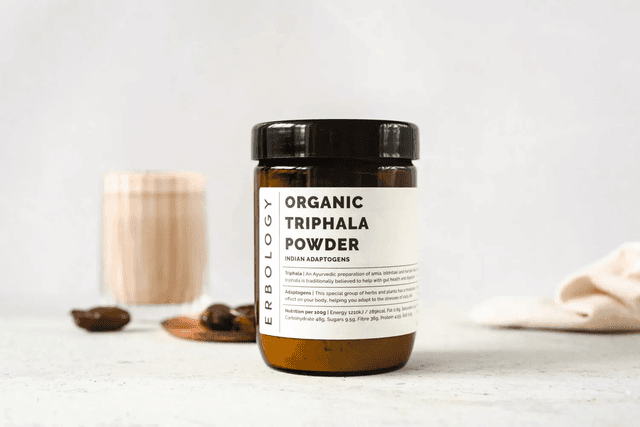16 Dec 2021
Do I take ashwagandha in the morning or night? Your ashwagandha questions answered.
When to take ashwagandha
Ashwagandha is a root which is very important in Indian traditional medicine. It is probably best-known as being a sleep aid and stress reducer.
(If you need a quick recap, head over to our article which explains more about ashwagandha's origins, uses and benefits.)
As a result, many people like to take it in the evening, before bed.
However, there’s also a case for taking it at other times of day. Ultimately, it depends on what works for you and which benefits are most important to you.
To find the right time for you, let’s look at the case for each time of day. Further down, we’ll also talk about some things to bear in mind when taking ashwagandha. Follow these to make sure you have the best possible experience with this special plant.
Ashwagandha and sleep
In scientific studies, ashwagandha has been shown to have a small but significant effect on improving sleep quantity and quality.(1)
This backs up thousands of years of knowledge from the ancient Indian medical practice of Ayurveda.
While our way of living tends to encourage us to simply ‘push through’ periods of poor sleep, it’s important to address the issue.
Poor sleep is a public health concern which results in a greater likelihood of accidents, higher absenteeism, healthcare costs and even premature death.(2)
Not to mention its effects on your individual wellbeing! Sleeping badly over a long period can make us feel exhausted, crotchety and bring on that all-too-familiar brain fog.
However, pharmacological treatments for insomnia often have unpleasant side effects which many patients find unacceptable.(1) As a result, they’re reaching for herbal alternatives in ever greater numbers. Ashwagandha is one of the herbs which is attracting interest in this area, and so far the results have been promising.
One review found that ashwagandha was able to improve sleep, anxiety levels and mental alertness first thing in the morning.(1)
Should I take ashwagandha in the evening?
If you’re keen to take advantage of ashwagandha’s benefits for your sleep, it’s a good idea to take it in the evening. That way, you’ll absorb the benefits of the root as you drift off.
We recommend waiting until 30 minutes to one hour after your evening meal, and then taking your ashwagandha.
We love to mix our Organic Ashwagandha Powder into a soothing moon milk. Not only is this the perfect vehicle for ashwagandha (more on that below), it turns it into a relaxing part of your bedtime ritual.
So, mix yourself up a moon milk, dim the lights and catch up with your favourite book or podcast. Bliss.
Ashwagandha’s benefits beyond sleep
However, ashwagandha doesn’t just help you get a good night’s rest. It has other benefits too - and some that may be of most help during the day.
As an adaptogen, ashwagandha can help modulate your body’s response to stress. There’s plenty more detail about this in our article about adaptogens and their uses, but we’ll summarise briefly here.
When your body responds to a stressor (be it mental or physical), you enter a state of alarm. This could be represented by being out camping and spotting a grizzly bear on the edges of the campsite!
This brief period followed by a longer secondary period of stress, usually when you’re dealing with the problem. For instance, running away from the bear.
Finally, once you’ve run out of energy, you enter a phase of exhaustion (hopefully long after you’ve outrun the bear).
This is all well and good if there really is a ferocious predator nearby, but in most of our lives the stress response is activated by things like work pressure, financial worries and other emotional stresses.
Ashwagandha and other adaptogens help by decreasing the intensity of your initial state of alarm and lengthening the secondary phase of stress. This also helps to avoid you reaching a state of exhaustion.
Related reading
- Adaptogens for sleep: Achieve the miracle of a good night’s rest
- What are adaptogens and their health benefits?





